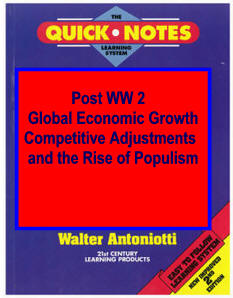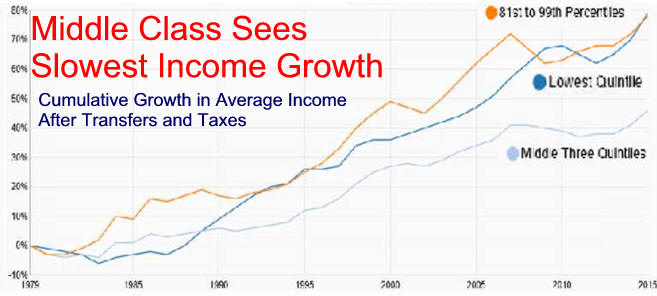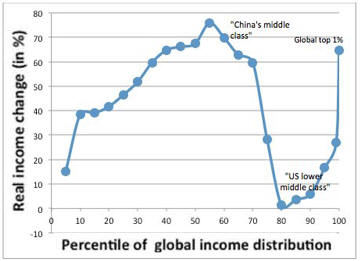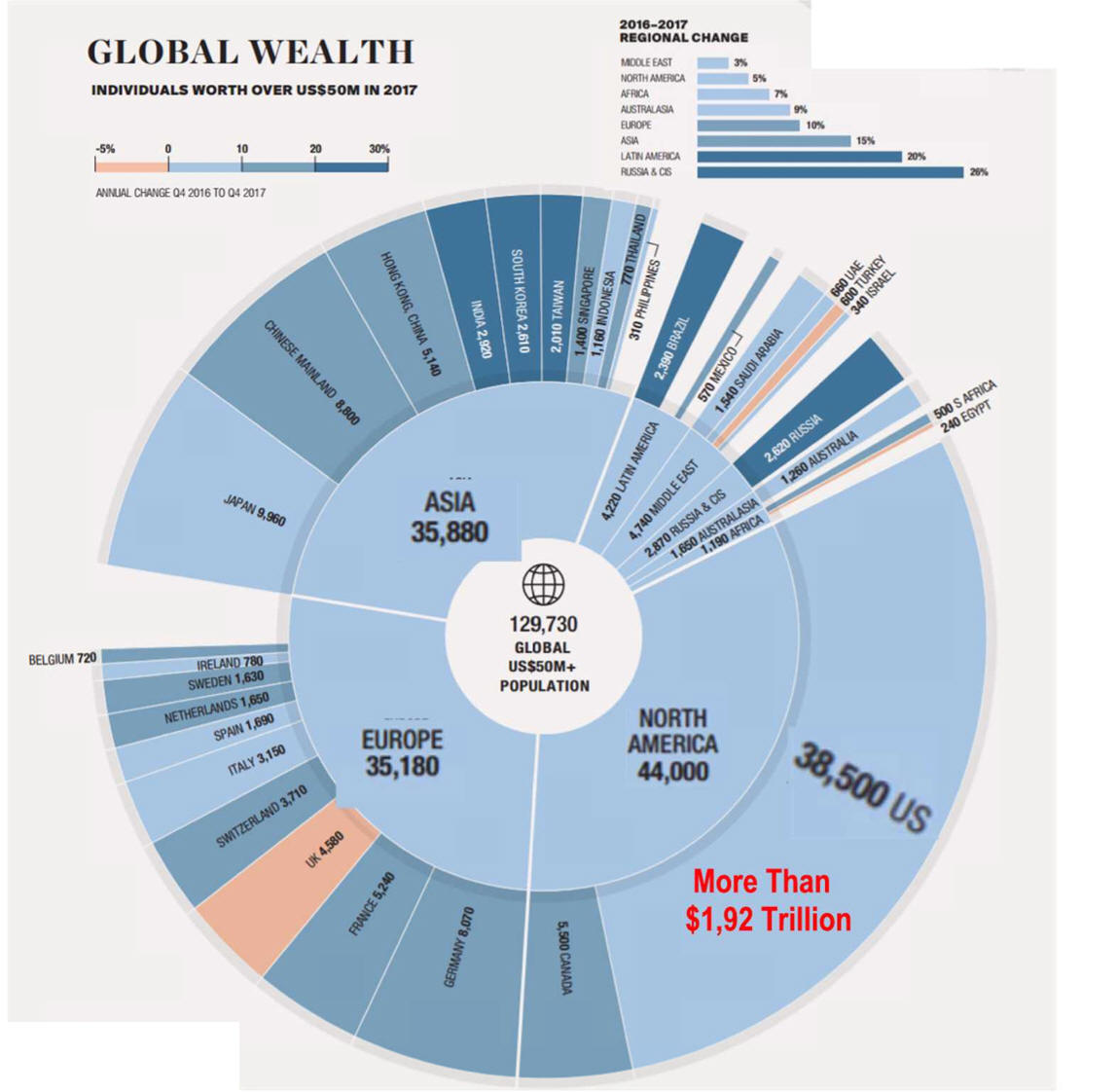|
Francis Fukuyama may yet prove to be right in predicting the
end of history. But there is no doubt that he was premature. The
idea that people have reached an "end point" of "ideological evolution
and the universalization of Western liberal democracy as the final form
of human government" quite obviously seems out-of-step with our
political reality in 2018. It could still happen one day. But it surely
hasn't happened yet.
Fukuyama knows this. However, to ensure that this is only a temporary
setback — not a permanent blow — for his thesis, he has penned Identity:
The Demand for Dignity and the Politics of Resentment.
Collapse of Soviet communism, Western liberal democracy and the free
market had triumphed and history had reached its "end" — Humans had
finally formed a political organization in harmony with their inner
nature. Though nations still on the other side of history could
certainly cause trouble for liberal democracies, they could not offer a
serious alternative.
America and populist
right wing "dietarian" movements all around Europe have jolted Fukuyama
out of his Hegelian certitude. And so he has hurriedly written Identity:
The Demand for Dignity and the Politics of Resentment, a book
that goes back to the beginning of Western thought and retraces its
evolution to see where it took a wrong turn.
What emerges from it, however, is not a
new way forward but an old and beaten path of income redistribution and
a national unity program. Basically, Fukuyama's solution is to redirect
the ethnic identity politics of the left and the right into a renewed
"creedal identity" that satisfies the natural human need for dignity and
recognition that Hegel said was the main driver of history. Such a Big
Government roadmap will actually work or make matters worse.
Hegel postulated that as human consciousness evolved so would human
institutions or social organizations until all the internal
contradictions of the psyche were resolved in a final rational polity.
Hunter-gathering and tribal societies developed into slave-owning ones
that morphed into monarchies or theocracies that finally modernized into
liberal democratic polities.
So why are liberal democracies in trouble? Because, notes Fukuyama, they
have ignored a core psychic need.
Plato and other ancient Greek philosophers believed that thymus, or
pride, was as essential as desire and reason.
And it craved satisfaction just like the others. But they also believed
that this part was in tension with itself. On the one hand, individuals
wanted equal recognition of the fundamental worth or inner dignity of
human beings (isthmian). On the other hand, they also wanted
to be recognized as better than everyone else (megalothymia).
Megalothymia results in constant jockeying for power and domination
in every facet of human life, especially politics.
Hegel's great insight was that recognition achieved through domination
is self-defeating because people crave the recognition not of their
inferiors (slaves) but superiors (masters). The minute they succeed in
dominating someone, that person's recognition becomes worthless. The
quest for recognition can thus only be satisfied in a society of equals.
For Hegel, the quest for dignity and recognition — or identity politics,
in our parlance — has been the ultimate driver of history, and will end
in an egalitarian liberal democracy with a commitment to individual
rights and justice.
Two developments have prevented liberal democracies from delivering on
Hegel's utopia, as Fukuyama explains.
First, the rise of income inequality. Thanks to globalization and
productivity growth between 1988 and 2008, the world has become
immensely richer. However, the lion's share has gone into the pockets of
the rich, hollowing out the middle class. Fukuyama does not claim that
this growth has necessarily hurt anyone. To the contrary, he admits that
those in the 20th to 70th percentile experienced bigger income increases
than those in the 95th. However, the global population around the 80th
percentile — which corresponds with the working middle class in the West
— experienced only marginal gains. These trends were most pronounced in
Britain and the United States, the two countries at the forefront of the
"neoliberal revolution" that Margaret Thatcher and Ronald Reagan
spearheaded.
Middle-class stagnation, in Fukuyama's telling, is more problematic from
a thymotic standpoint than an economic standpoint because the
real purpose of income, once you reach a certain point at least, isn't
to feed material needs but positional ones. So even if the middle class
in the West has suffered no absolute loss of income, the relative loss
of status makes these people feel ignored and invisible.
The other factor is the rise of the wrong kind of dignity or identity
politics.
Some identity politics seek to honor the inner "dignity" of individuals
by extending basic state protections to all citizens irrespective of
race, caste, creed, or religion. This is noble, but in practice has
transmogrified into a "therapeutic state" whose main aim became to
rescue what the French philosopher Jean Jacques Rousseau called the
innate "goodness of man" from the corrupting demands and conventions of
society. Self-actualization rather than social cohesion became the
political project. As but one example: California formed a task force to
"Promote Self-Esteem and Personal Social Responsibility." The 1990
manifesto could have been plucked out of the Esalen
Institute. (Sample statement: "The point is not to become acceptable
and worthy, but to acknowledge the worthiness that already exists.")
This type of identity politics has uncorked personal pathologies that
religion had kept in check, particularly an unquenchable narcissism that
social critic Christopher Lasch famously called out because it sought
external social validation from the very society it constantly
undermined.
Another kind of identity politics seeks the dignity of "collectives,"
essentially rejecting the idea of some generic inner dignity of
individuals while disrespecting the sense that their particular racial,
cultural, religious, linguistic, and other connections could satisfy
the thymotic needs of marginalized groups. Fukuyama
acknowledges that this sort of identity politics has done some good.
After all, blacks couldn't launch their struggle to end the atrocities
of the Jim Crow era without building black pride. Similarly, women
couldn't dislodge engrained social "discrimination, prejudice,
disrespect, and simple invisibility" without a feminist movement that
celebrated womanhood.
But the advent of multiculturalism took things too far, Fukuyama
believes. It encouraged an ever-proliferating panoply of
micro-identities to seek not equal treatment from society but separation
from it because, ostensibly, each group's "lived experience" of
victimization — another concept borrowed from Rousseau, Fukuyama points
out — was different and inaccessible to outsiders. Multiculturalism
built silos instead of bridges with broader society.
Multiculturalism also prodded the left to abandon its traditional
emphasis on economic inequality precisely when the dignity and status of
the Western middle class was taking a beating from globalization. This
left many ordinary people without a political home to voice their
insecurities, paving the way for right-wing demagogues to launch their
own brand of reactionary blood-and-soil identity politics — using the
language and tactics of their leftist fellow travelers.
"That the demand for dignity should somehow disappear is neither
possible nor desirable," notes Fukuyama.
This is a charmingly old-fashioned idea. There is much to like about it.
But the Big Government roadmap that Fukuyama lays out is problematic to
say the least.
Fukuyama admits that he has no use for limited government libertarianism
and, in fact, believes that it was unfortunate that the right's critique
of the unintended consequences of ambitious social programs unnerved the
left. It's high time, he thinks, to stop being shy about using
government to achieve national unity.
The Netherlands, for example, must end its age-old acceptance of "polarization,"
or letting different religious groups establish their own schools,
newspapers, and political parties. It was one thing to go along with
this arrangement when it meant buying social peace among Catholics,
Protestants, and secularists. But it has ghettoized Muslim immigrants
and prevented them from assimilating, claims Fukuyama.
This sounds good on its face. But America's relatively limited
experiment with state-enforced busing to end segregation was a disaster.
White families who didn't want their children to have to spend hours
being transported to another school district put their kids in private
or parochial schools or fled from inner cities to distant suburbs
outside of the busing zone. All of this exacerbated segregation and
racial tensions. But Fukuyama seems so determined to ignore the danger
of unintended consequences that he doesn't entertain any downside to his
proposal, much less question its feasibility.
In America, Fukuyama believes, the left needs to return to a class-based
politics that unites various marginalized groups around pocketbook
concerns. At the electoral level that means that Democrats should quit
playing identity politics and nominate a younger version of Joe Biden
who can connect with the working class, regardless of race, sex, or
religion. At the programmatic level, it means a renewed embrace of
redistribution programs on the scale of the New Deal and the Great
Society. He also wants a "national service" program that replicates the
military's stellar success in assimilating recruits of diverse
backgrounds.
The primary point of returning to a redistributive politics is not so
much to expand the social safety net as to even out envy-inducing social
hierarchies. In other words, make the rich poorer and the poor richer to
make the working class feel better about itself. That such policies
would be fiscally unaffordable and economically deleterious, Fukuyama
doesn't consider. But the bigger problem from his own standpoint is that
giving government more control over more wealth is likely to deepen
existing social fissures by triggering a fiercer race for the spoils,
especially in the post-Trump era where whites are emboldened.
Fukuyama's call for national service is perhaps more innocuous, but it's
hard to see how it'll accomplish much. The military is united around a
clear mission — protecting the nation — that helps overcome other
divides. What would be the unifying passion of national service? Digging
sewers in poor neighborhoods might appeal to congenital do-gooders but
it's not the kind of thing that brings people together like the enemy at
the gate.
What's befuddling about Fukuyama's recommended agenda is that it
ultimately departs from his own Hegelianism. Hegel, contra Marx,
believed that ideas shaped the material — economic — world, not vice
versa. That means that the political battle is ultimately an ideological
battle. Victory depends on winning hearts and minds, not economic
appeasement. If that's the case, Fukuyama would have been better off
exposing what's false, contradictory, and self-negating about the new
and pernicious identity politics of the left and right and leaving it at
that.
Nevertheless, Fukuyama has written an intricate account of this peculiar
phenomenon. It is a must-read for anyone interested in understanding our
bewildering political times in a broader historical and philosophical
context.
What's needed now is a renewed commitment to "e
pluribus Unum,"
Fukuyama says.
|

 v
v


